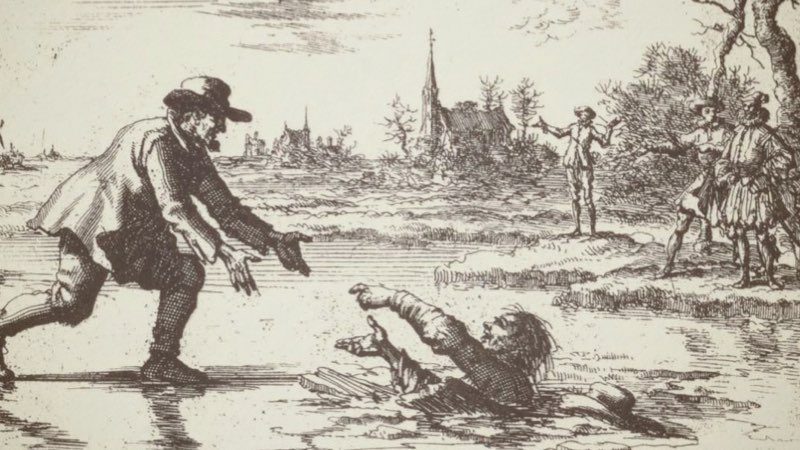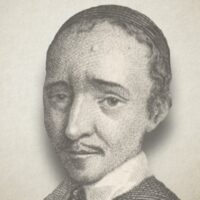
38. The Apostle Bartholomew
Bartholomew, The Holy Apostle Of Christ, First Greatly Tortured, Then Flayed Alive, And Finally Beheaded, In Armenia, By King Astyages, About A.D. 70.
Bartholomew, which signifies, the son of Tholomaeus, was a Galilean, like all the other apostles; and also a fisherman, according to the opinion of Theodoretus; some, however, hold, that he was of royal descent, and the nephew of the king of Syria.
Little is said of him in Holy Scriptures aside from what relates to his call to the apostleship to preach the Gospel with the others throughout Judea and Galilee, to the lost sheep of the house of Israel. After Christ’s resurrection he was confirmed in his apostleship, and, with the others who were in like ministry, received the gift of the Holy Ghost. Matt. 10:3; Mark 3:18; Luke 6:14,15; Acts 2:1-5.
After the separation of the apostles he exercised his ministry first in Lycaonia, then in Syria and the upper parts of Asia, and afterwards in India, where, as the chronicles relate, Pantenus, a teacher of Alexander, coming to the same place, about a century afterwards, found and took away with him the Gospel of Matthew, which Bartholomew had brought thither, and which he had taught the Indians in their native tongue. Isid. de part N. T., J. Gys. Hieron, Catal. Pantaleon, Euseb., lib. 3, cap.10,/. Gys.
Finally he spread the Gospel in Great Armenia, and there, in Albana, or Albanopolis, the capital and residence of the kingdom of Poleno, or Palemonio, and converted King Astyages’ brother, together with his wife, two sons, and a daughter, to the faith. Hieron. Cat. Barthoi., J. Gys.
He moreover, as is stated by others, delivered from idolatry, and enlightened with the knowledge of Jesus Christ, twelve cities in that country, in which the devil was worshiped through the idol Ashtaroth. But the priests of Ashtaroth, being very much vexed on account of this, complained to King Astyages, who caused Bartholomew, this holy apostle of Christ to be apprehended and brought before him.
When Bartholomew stood before the king, the latter upbraided him, that he had perverted his brother, and unsettled the worship of the gods in his country. He therefore threatened him with death, unless he would desist preaching Christ, and sacrifice to his gods.
When Bartholomew had replied to this accusation, saying, that he had not perverted, but converted, his brother, that he had preached the true worship of God in his country, and that he would rather seal his testimony with blood, than suffer the least shipwreck of his faith or conscience, the king gave orders, that he should first be severely tortured and beaten with rods, then be suspended on a cross with his head downwards, flayed alive, and finally beheaded with the ax. This having been done with him, he was united with Christ, his Lord. Niceph. lib. 3, cap, 39, Isid. Hisp. de vita et obitu sanrt, J. Gys. Hist. Mart, super Bartholomeum.
Others relate that the sentence pronounced upon Bartholomew extended no further, than that he should be flayed on the cross, without any mention of decapitation; but that, as he, being still alive after having been flayed, exhorted the people, his head was struck off with an ax, in order to prevent this, he having committed his spirit into the hands of God. Konst-tooneel van vcertig, about the Life of Bartholomew. Also, Bybclsch Nacmboek, printed at Horn, Anno 1632, letter B. on the name Bartholomew, jol. 159, col. 2.
Thieleman J. Van Braght (1625-1664) was an Anabaptist who is best known for writing a history of the Christian witness throughout the centuries entitled “The Bloody Theater or Martyrs Mirror of the Defenseless Christians who baptized only upon confession of faith, and who suffered and died for the testimony of Jesus, their Saviour, from the time of Christ to the year A.D. 1660” (1660).
Thieleman J. Van Braght, Martyrs Mirror



